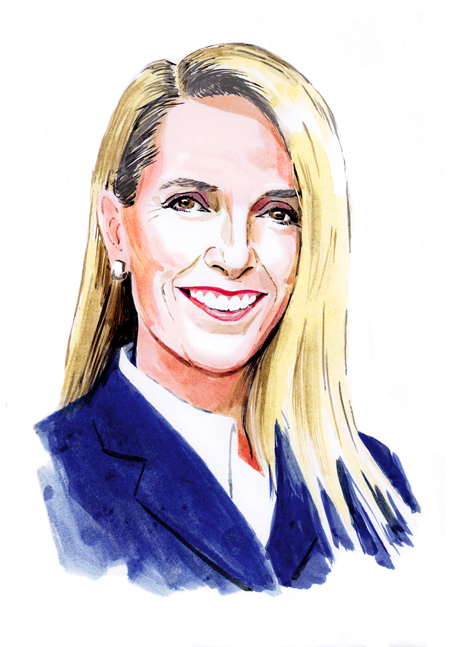
Portrait by Dan Williams
Relaxing in comfortable chairs around a room for a rich Bible study or book club discussion. Enjoying meals with family and friends for special occasions. Worshiping at your local Church, a hallway conversation with colleagues, volunteering with local associations, professional meetings and conferences.
My guess is that when you think about being in community, a visual comes to mind. These days, those images may well include dozens of frames on Zoom, a loved one’s image on FaceTime, chat rooms for an online gathering, and comments on a social media thread.
The ways we experience community continue to shift, with repercussions for theological education where certain critical virtues should pertain. Many of you meet, teach, learn, and engage fully online. To be sure, technology facilitates all manner of work, social engagement, connections, and even worship, expanding access and creating communities unimagined just 10 years ago. As hybrid and remote platforms have encroached on our educational and work environments, I am curious to know how many communities are hybrid or fully online out of convenience, rather than designed with deliberate and thoughtful consideration to meaningfully bring people together in community.
The In Trust Center is pursuing a growing recommitment to the power of – and essential need for – face-to-face interaction to ensure effective board stewardship. Our consulting work with boards has in the past few years revealed a need for more time for building community, and for more attention to the relationships that are fundamental to board development and decision-making. Physical community expands new thinking. Outside of the board room, the meals and conversations provide periods where we can linger a bit longer than our Zoom sessions might allow. They foster relationships, establish trust, tend to institutional culture, allow vulnerability, and sharing. The most effective boards also have deeply engaged board members with strong relationships with one another.
Our article about the ways boards have adapted to the virtual paradigm (It’s More Than Unmuted, p. 16), offers ideas both profound and practical for the relationship building and collaboration essential to highly functioning boards. And our story about the Lilly Pathways Phase 3 project underway at Kairos University (Synchronicity, p. 26) showcases an academic effort that is successfully bridging distance learning and meaningful formation.
Amy L. Kardash, President